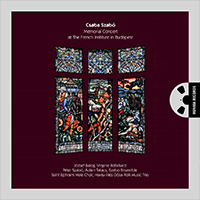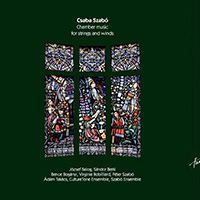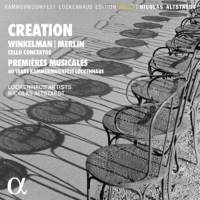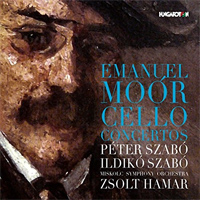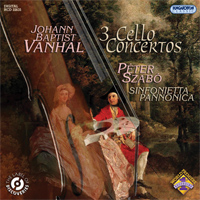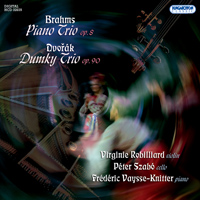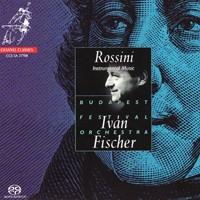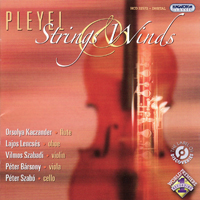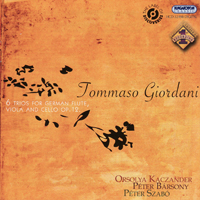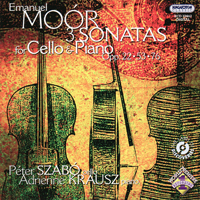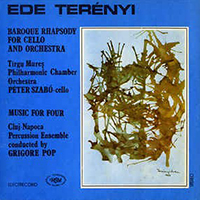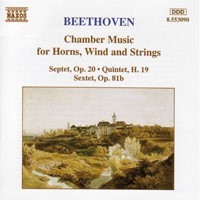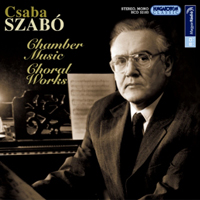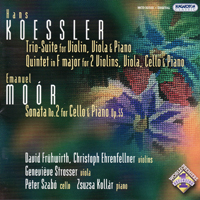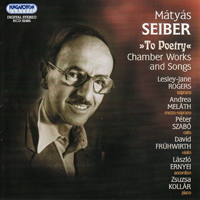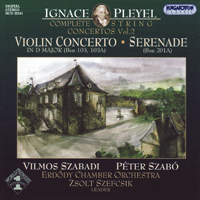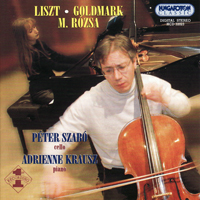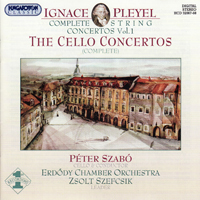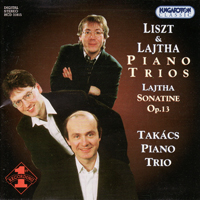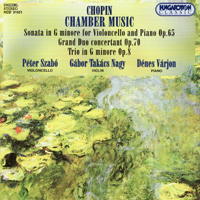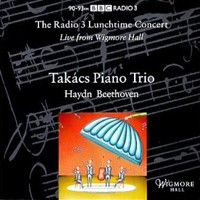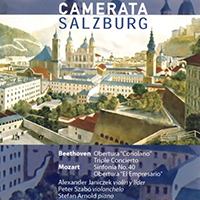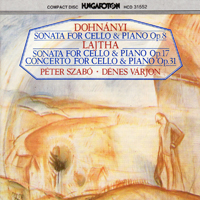A string quartet with Wolfgang Amadeus (Cello concertos by Vanhal)
JOHANN BAPTIST VANHAL:
3 Cello Concerto
Sinfonietta Pannonica
Péter Szabó - cello
Hungaroton
HCD 32635
Johann Baptist Vanhal was born in the Czech Republic, to a modest peasant family. Going to Vienna and becoming the disciple of Dittersdorf in the end of the 1760s turned out to be a real landmark for him. In a few years, he composed 30 symphonies, countless chamber music pieces and ecclesiastical music. In 1769, he went to Italy, but later on he moved back to Vienna and settled down for good. In the string quartet, he performed with such notabilities like as Haydn, Mozart and his previously mentioned mentor, Dittersdorf.
His art was highly appreciated by his contemporaries; the praising words of praise by one can be found in the accompanying booklet as well: ?The witty, natural and direcly toned Vanhal symphonies seem to precede those of Haydn?s, at least in the U.K. The quartets and other pieces of this excellent composer retain their privileged situation; their melodies and pleasing harmonies are melt ed together to give have a perfect composition, in a disengaged and masculine style.
According to C. F. D . Schubart in 1784: "Vanhal is undoubedly one of the most modern composers, the most noble and skilled of all.? Of course, critics remain critics who are far beyond flawless. However, Vanhal?s symphonies did not fall short of those of his great contemporaries like Haydn and Mozart. They lacked a certain but undefinable ?extra ? though, which makes the pieces of real talents popular throughout centuries.
Hungaroton?s new CD includes three cello concertos of Vanhal, composed between 1785 and 1787. Each of them is an enjoyable, well-written piece of three movements. It must be a real pleasure for cello artists to have this record as a public domain, thanks to Péter Szabó.
The CD represents Péter Szabó as a soloist and also as the artistic manager of the Sinfonietta Pannonica. According to the accompanying booklet, the orchestra was founded especially for this CD, by members of the leading symphonic orchestras in Hungary. In the light of this, it is no wonder the sound is excellent ing has no problem at al l.
I cannot say anything bad about Péter Szabó?s performance either. He sounds plays the demanding quick movements with virtuosity; and he plays with energy, and the cello voice he makes is very nice. As for the slow movements, there, he is not so less convincing though. He ? is s a bit in a hurry sometimes, and may be not the best in economi z sing his time. However, it is also true that the music itself is not so enchanting and captivating, as it us ed to be is in the slow movements of Mozart?s concertos, for example. Nevertheless, I recommend this CD with confidence to those who are fond of classic music, and especially to those who are enthralled by the wonderful voice of cellos.
By Johanna
Source: www.momus.hu
Translation by Viktória Kiss
Café Momus
September 2010


